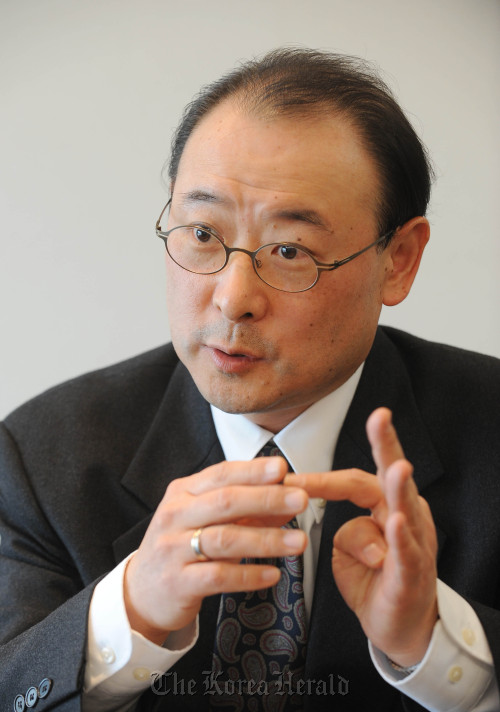Korea’s first integrated gasification combined cycle power plant, a type of renewable energy production unit, broke ground last month in Taean, South Chungcheong Province.
The 300-megawatt “cleaner coal” facility will turn coal into synthesis gas, then remove impurities from the coal gas before it is combusted and turn any pollutants into reusable byproducts, resulting in lower carbon emissions.
Korea Western Power Co. picked General Electric as the supplier of a 7F Syngas Turbine, a D11 steam turbine, a heat recovery steam generator and associated equipment for the new plant in Taean, about 100 kilometers southwest of Seoul. GE also will provide 10 years of maintenance service for the plant.
“GE’s syngas turbine technology underscores our company’s commitment to powering the world with cleaner energy products,” said Gong Sung-do, president of the Korean arm of GE Energy.
“It supports a role for coal, an abundant and cost-effective fuel source, in a cleaner energy economy. We are very pleased that our technology has been selected by KOWEPO for this milestone project, which will demonstrate the important role IGCC can play in Asia’s energy future.”
 |
Gong Sung-do, president of the Korean arm of GE Energy. |
Gong, who took helm of GE Energy Korea in May, said Korea is highly significant to GE Energy’s business in four ways.
Korea, first of all, is the world’s eighth largest consumer of energy, with annual consumption of some 225 million tons of oil equivalent last year.
“Secondly, our Korean clients do a lot of overseas projects, helping us make inroads to foreign markets. Korean companies dominate the engineering, procurement and construction market in the Middle East, and show high market shares in oil refineries and petrochemical plants abroad as well,” Gong told The Korea Herald.
Gong also pointed to Korea’s high-skilled human resources with an especially deep knowledge base in IT, and the high quality of Korean suppliers’ products.
GE Korea aims to more than double its sales in the next three to four years. GE Energy Korea's sales this year are estimated to account for about 30 percent of GE Korea’s total of $1.7 billion.
GE Korea also has healthcare, aviation, transportation, capital and home and business solution businesses under its wing.
GE has been making major investments in Korea, and plans to expand investment by about 20 percent over the next two to three years.
GE Korea began running a research and development center in Songdo, Incheon, last year and plans to complete another R&D center in Pangyo, Gyeonggi Province, next year for development of software to raise power efficiency of power generating facilities, smart grid technology, recharging systems for electric cars, as well as smart home electronics.
Gong, who started out as a lawyer, has been in the energy business since 1999. He served as the head of BP Korea and Hyosung’s wind power business. He has also briefly worked on public sector reforms and privatization of public companies in the Korean government’s budget planning committee under the Kim Dae-jung administration.
“When I was in BP, we always had to benchmark GE for everything we do from human resource policy to new business development. It made me curious about what it would be like to work at GE, so I took the chance when it came,” Gong said.
GE intertwines its business strategies with corporate social responsibility and places great emphasis on integrity and compliance whereas Korean companies do not see these as corporate competitiveness, according to Gong.
“You can see a person’s disposition in times of crisis, and GE trains you to make the right decisions through strict legal compliance even during crisis,” he said.
By Kim So-hyun (
sophie@heraldcorp.com)








